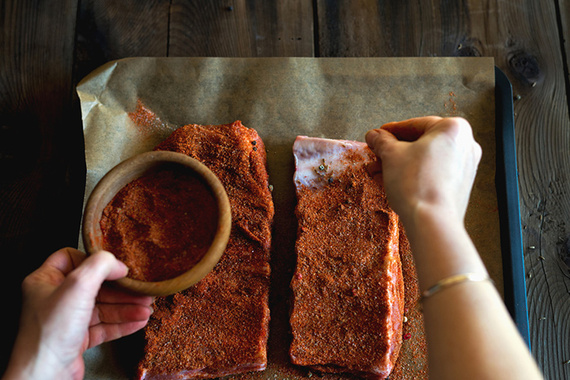
By Well+GOOD
If you're a health-minded carnivore, you've probably found yourself standing in a grocery aisle, holding two options in your hands and puzzling over the labels.
What, exactly, does free-range mean again? You pause for a moment, and turn to the other package before wondering, And is organic better?
Welcome to the confusing world of meat terminology, where it sometimes seems like a nutrition degree is necessary for decoding what you put in your fridge and your plate.
"I think there's more confusion because of the explosion of manufacturer-created logos and marketing terms that don't have true regulatory oversight," says Ashley Koff, RD, who runs the Better Nutrition Simplified Program. "People are confused what to look for for."
With that in mind, here's the 411 on the five terms that will help you be a smarter meat eater:
1. Natural
"Natural" is a clear and meaningful meat term, insofar as the USDA has a set definition for it, explains Dawn Undurraga, RD, a nutritionist for the Environmental Working Group (which publishes a comprehensive Meat Eater's Guide). To qualify, meat must contain no artificial ingredients or added color (gross to think about, we know), and be only minimally processed. All fresh meat, therefore, is considered natural--but it doesn't mean a whole lot beyond that.
2. Organic
"Organic" is another label with a clear, USDA definition--and one the experts say you definitely want to prioritize in your shopping trip. Organic meat and poultry can't be treated with hormones or antibiotics, and it must consume only organically grown feed. Plus, the animals are required to have access to the outdoors. "'Organic' is a great certification, and it's great for the environment," says Undurraga. But looking for a combo of labels is better. In other words, organic may be awesome, she says, but organic and grass-fed (more details on that below) is potentially even better.
More Reading from Well+GOOD:
7 totally different ways to eat Paleo
Why "100% preservative-free" on your beauty label could be a red flag
Why more vegans are putting meat back on their plates
(Photo: Pixel Stories/Stocksy)
Also on HuffPost:
